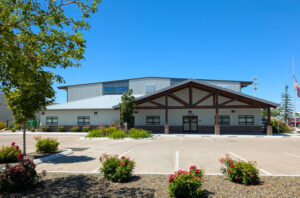What are Deep Foundations?
Deep foundations refer to structural elements that are used to transfer loads from the superstructure of a building or infrastructure project to deeper layers of soil or rock. They are typically employed when shallow foundations are unable to provide sufficient support due to weak or unstable soil conditions near the surface.
Deep foundations are designed to withstand various types of loads, including vertical loads from the weight of the structure itself and any additional loads such as occupants, furnishings, or equipment. They also resist lateral loads caused by wind, earthquakes, or soil pressure. In addition to supporting the structure, deep foundations serve other crucial purposes.
Load-bearing Capacity
Deep foundations are designed to carry heavy loads, ensuring that the structure remains stable and does not settle excessively. They provide sufficient bearing capacity to support the weight of the structure and any anticipated live loads.
Stability on Weak or Unstable Soil
Deep foundations are employed when the upper layers of soil are weak, compressible, or prone to settlement. By reaching deeper into more stable soil or rock layers, deep foundations prevent excessive settlement and ensure the structure remains stable over time.
Resistance to Uplift Forces
In areas with high water tables or expansive soils, deep foundations are used to anchor the structure and resist uplift forces. They provide a secure foundation that prevents the structure from lifting or shifting due to hydrostatic pressure or soil movements.
Bridge Construction
Deep foundations are commonly used in bridge construction to support the heavy loads imposed by the bridge structure and traffic. They ensure the stability and safety of the bridge, particularly in situations where the soil conditions near the surface are insufficient.
Mitigation of Soil Liquefaction
Deep foundations can help mitigate the effects of soil liquefaction, which occurs during earthquakes when saturated soil temporarily loses its strength. By reaching deeper into more stable soil layers, deep foundations provide increased resistance to liquefaction-induced settlement and structural damage.
Ready to learn more?
Deep Foundations, Part Two: Comparison with Shallow Foundations
Deep Foundations, Part Three: Types
Deep Foundations, Part Four: Type Comparisons
Different Structural Foundation Types
Straight Shaft Drilled Concrete Pier Foundation










